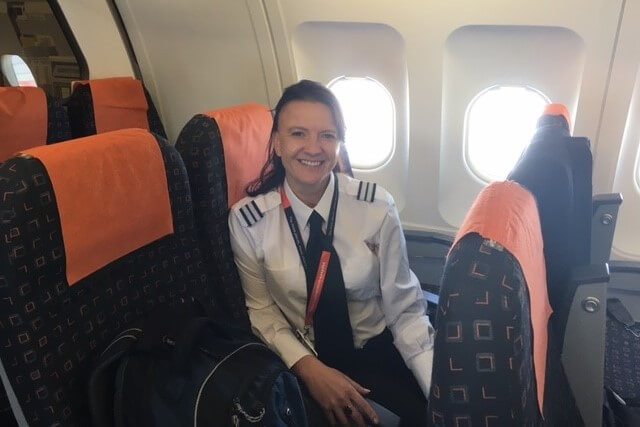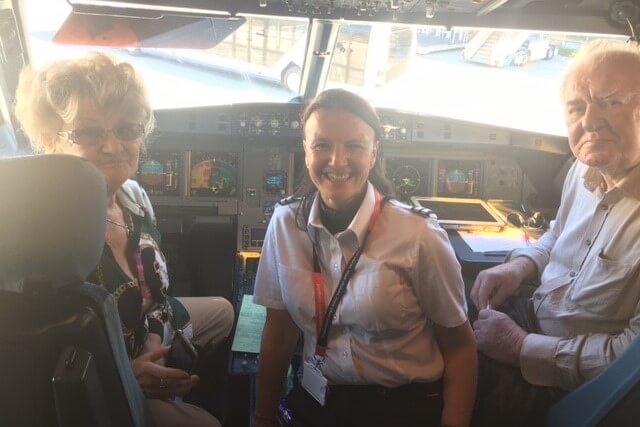There’s not a lot of flying going on in Europe right now. But that doesn’t mean the aviation industry is twiddling its thumbs while waiting for the pandemic to ease and people to get back on planes. Behind the scenes, aerospace manufacturers, airlines, engineers, pilots, academics and governments are working on how to make flying more sustainable in the future.
Britain’s Aerospace Technology Institute last year announced the FlyZero initiative to help the UK aerospace industry develop a zero-carbon emission aircraft by 2030.
The pressure has since increased on the UK aviation industry to become more sustainable after the British government announced on 20 April 2021 that it wanted to cut carbon emissions by 78% from 1990 levels by 2035, with international aviation being included in the target for the first time.
“The industry completely needs to come on board with this topic now. And it’s becoming more and more important with every year that goes by,” says Deborah Thomas, an easyJet A320 First Officer and software engineer, who started work for FlyZero in February.
Deborah studied maths and astrophysics and has also recently started a Master’s Degree in computer science and data analytics. She asked easyJet last year if she could be seconded to the project while grounded as a result of the Coronavirus pandemic.
“I was looking at how I could use some of my skills in engineering to help and what I could do with my time usefully,” Deborah explains.
The FlyZero programme brings together around 100 people seconded from industry and academia and has received a £15 million grant from the UK Department for Business, Energy and Industrial Strategy (BEIS)
The project also aligns with easyJet’s ambitions, with the company stating it is “fully committed” to the UK Government and EU targets of net zero emissions by 2050 and believes that European short-haul aviation should aim to reach net zero earlier than this.
Deborah, who started flying commercially in her thirties after previously working for Airbus as a software engineer in Bristol, says FlyZero aims to provide a roadmap for how the UK can achieve a zero-carbon emission aircraft by the end of the decade.
“We’re looking at it from the industrial side, the infrastructure required for these new technologies, to the manufacturing, to the design and the airlines, airports and airspace that they’re going to be embedded within in the future. So it’s a whole holistic view to making this happen,” Deborah told AeroTime.
“I believe with FlyZero we will make really good headway into making that a realistic achievement.”
Deborah is used to juggling lots of demands, having trained to become a commercial pilot on a modular basis while working for Airbus and raising her family. She also understands how crucial it is to be flexible in an industry where things can change overnight, after the 9/11 attacks thwarted her initial plans to get into commercial flying after university.
Her career path now means she is uniquely placed to bring together competing aspects of creating a zero-carbon emissions aircraft.
Not only can she create mathematical simulations of the concepts and technologies that FlyZero is exploring, Deborah can also elaborate on actually operating the aircraft day to day in the current airspace set up.
“ I think if you’re doing a research project in isolation away from the actual operations you could come out with an answer that’s not workable within a real operation. So I think to have that perspective is really important,” she says.
As a relatively new pilot, Deborah is very much enjoying flying the Airbus A320 but would of course love to fly a new concept aircraft that comes out of the FlyZero project.
“It would be a wonderful thing for us to achieve zero carbon flying to make it a sustainable future,” she says.


